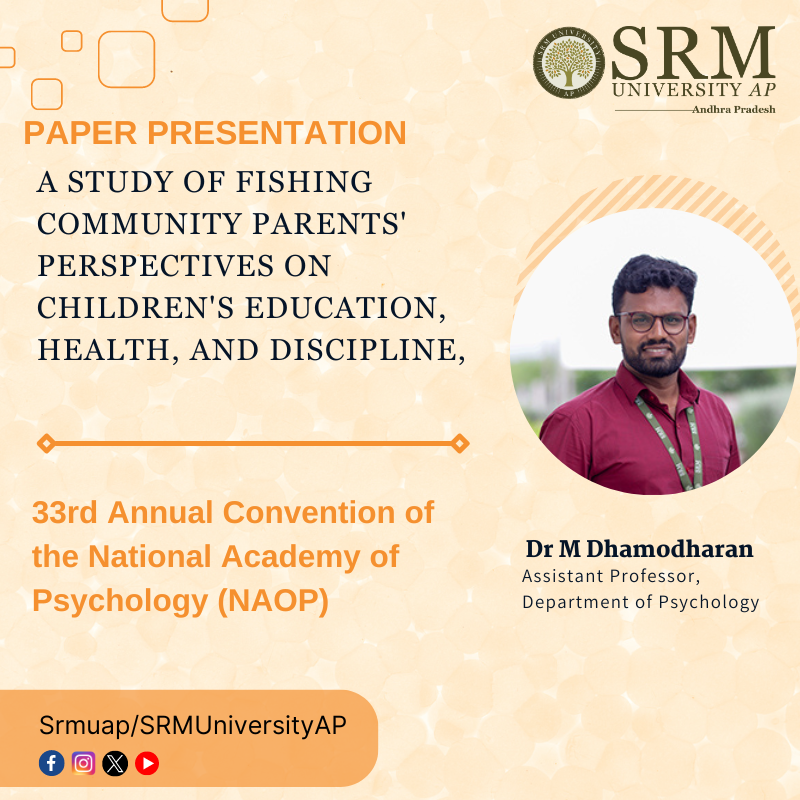
The Department of Psychology at SRM University-AP is pleased to announce Dr Dhamodharan’s pivotal insights, which surfaced at the culmination of the 33rd Annual Convention of the National Academy of Psychology (NAOP), orchestrated by the Department of Applied Psychology at GITAM School of Humanities and Social Sciences, Vishakhapatnam. Dr Dhamodhran, Assistant Professor at the Department of Psychology published his paper, titled “A Study of Fishing Community Parents’ Perspectives on Children’s Education, Health, and Discipline,” which has received profound attention for its insightful analysis.
Abstract:
The Sustainable Development Goals (SDGs) prioritise addressing poverty, promoting good health, and ensuring quality education, among other objectives. However, coastal villages often experience profound socio-economic, financial, and educational disadvantages, leading to recurring financial hardships. The literacy levels within fishing communities are notably deficient, exacerbating challenges in accessing fundamental amenities such as clean drinking water, adequate shelter, educational opportunities, and general well-being. The pervasive poverty and vulnerability prevalent in these areas significantly impede children from fishing villages from regularly attending school, thereby impacting their overall health, educational attainment, and mental well-being. The present study explains the fisher community’s parental perceptions about children’s education, health, and corporal punishment. A cross-section design was used. Samples were selected from four clusters (N = 100, each cluster = 25) from Tamil Nadu and Puducherry. A semi-structured interview method was used. The data were analysed with SPSS and thematic analysis. The result of the study indicates that most of the fisher parents are uneducated, and parents give importance to their children’s education, health, and career choices. Lack of proper income, lack of awareness about academic guidance, corporal punishment, and child rights in the community. The study suggests developing more intervention programmes at the family, school, and community levels to improve the fishing community families and the well-being of the children.

